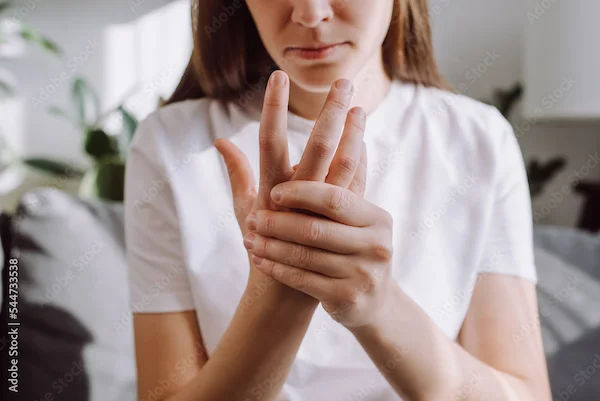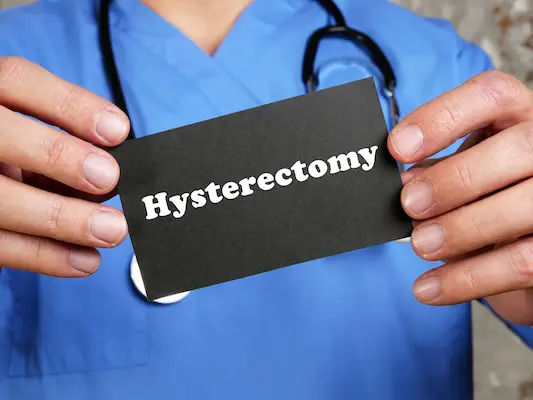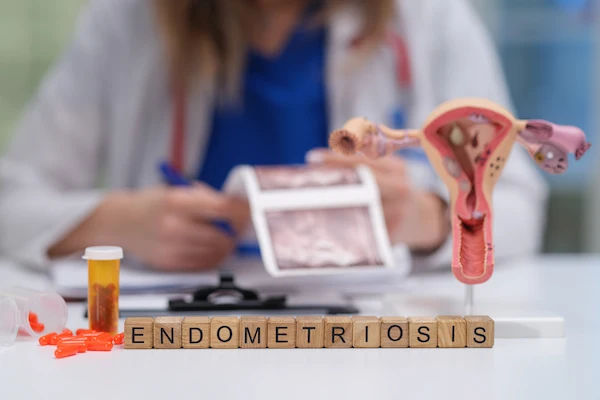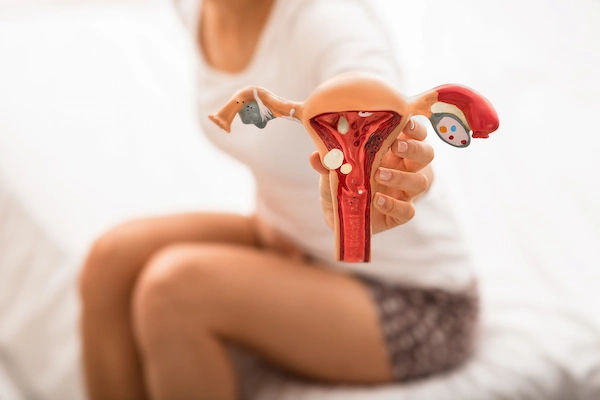Hormones After Hysterectomy After Menopause
Discover how hormone levels change after a hysterectomy in postmenopausal women, potential health impacts, and ways to manage symptoms for bone, heart, and emotional well-being.

Written by Dr. Mohammed Kamran
Reviewed by Dr. Rohinipriyanka Pondugula MBBS
Last updated on 13th Jan, 2026
.webp?tr=q-80,f-webp,w-350,dpr-2,c-at_max 700w)
Introduction
Undergoing a hysterectomy (surgical removal of the uterus) after menopause can bring about changes in your body, particularly in hormone levels. While menopause already marks the end of reproductive hormone production, a hysterectomy can further influence how your body functions. Understanding these changes can help you manage your health better.
What Happens to Hormones After a Hysterectomy?
Hormonal changes after hysterectomy depend on whether the ovaries are removed during the procedure.
After menopause, your ovaries produce very little oestrogen and progesterone. However, if your ovaries are removed during the hysterectomy (called an oophorectomy), your body loses even these small amounts of hormones. This can lead to:
A sudden drop in oestrogen and progesterone (if ovaries are removed).
No further menstrual cycles (since the uterus is gone).
Possible hormonal imbalance symptoms, even if you’ve already gone through menopause.
If your ovaries are not removed, they may still produce minimal hormones, but their function declines naturally with age.
How Does This Affect Your Health?
A hysterectomy after menopause may have various effects on overall health.
1. Increased Risk of Bone Loss (Osteoporosis)
Oestrogen helps maintain bone strength. A further drop in oestrogen after a hysterectomy can accelerate bone loss, increasing the risk of fractures.
2. Possible Vaginal Dryness & Discomfort
Lower oestrogen levels can cause vaginal tissues to become thinner and drier, leading to discomfort during intercourse or daily activities.
3. Mood Changes & Fatigue
Hormonal fluctuations may contribute to mood swings, irritability, or low energy levels.
4. Heart Health Concerns
Oestrogen has a protective effect on heart health. A sudden drop may slightly increase the risk of cardiovascular issues.
Consult Top Gynaecologists
Managing Hormonal Changes After Hysterectomy
Managing hormone-related changes after surgery is important for long-term health and comfort.
1. Hormone Replacement Therapy (HRT)
If your ovaries are removed, your doctor may recommend HRT (oestrogen or a combination of oestrogen and progesterone) to manage symptoms and reduce long-term risks like osteoporosis. However, HRT isn’t suitable for everyone—discuss risks and benefits with your doctor.
2. Bone Health Support
Calcium & Vitamin D: Ensure adequate intake through diet or supplements.
Weight-bearing exercises: Walking, yoga, or light strength training helps maintain bone density.
3. Vaginal Health Care
Water-based lubricants can ease discomfort during intimacy.
Vaginal moisturisers help maintain moisture.
Low-dose vaginal oestrogen creams (if approved by your doctor) can improve tissue health.
4. Heart-Healthy Lifestyle
Eat a balanced diet (rich in fruits, vegetables, whole grains, lean proteins).
Exercise regularly (30 minutes of moderate activity most days).
Monitor blood pressure & cholesterol with routine check-ups.
5. Emotional Well-being
Stay socially active—connect with friends and support groups.
Practice relaxation techniques like meditation or deep breathing.
Talk to a counsellor if mood changes feel overwhelming.
When to See a Doctor?
Knowing when to consult a doctor can help you address potential complications early.
Consult your healthcare provider if you experience:
Severe hot flushes or night sweats.
Persistent vaginal discomfort.
Unexplained mood swings or depression.
Joint pain or signs of bone weakness.
If you need personalised guidance, you can book a consultation with a gynaecologist or endocrinologist through Apollo 24|7 for expert advice.
Conclusion
A hysterectomy after menopause can impact your hormones, but with the right care, you can manage these changes effectively. Focus on a healthy lifestyle, stay in touch with your doctor, and don’t hesitate to seek support when needed.
Remember, every woman’s experience is unique—what works for one may not work for another. Listen to your body and take proactive steps for long-term well-being. Schedule a consultation today on Apollo 24|7 for expert care tailored to your needs. Stay healthy and empowered!
Consult Top Gynaecologists
Consult Top Gynaecologists
Dr. K Anusha
Obstetrician and Gynaecologist
4 Years • MBBS, DGO
Yemmiganur
SRINIVASAA HOSPITAL, Yemmiganur

Dr. Mona Yadav
Obstetrician and Gynaecologist
19 Years • MBBS, MD (Obstetrics & Gynaecology)
Dombivli
Nulife multispeciality, Dombivli

Dr. Parul Sharma
Obstetrician and Gynaecologist
8 Years • MBBS, MS (Obstetrics & Gynaecology)
New Delhi
THE DOCTORS NESST, New Delhi
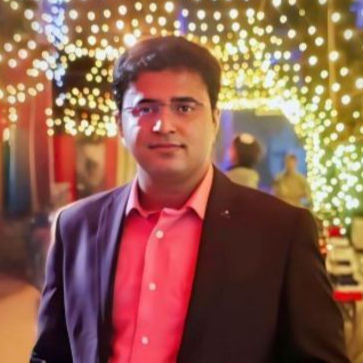
Dr. Debajyoti Goswami
Obstetrician and Gynaecologist
10 Years • MBBS,D.G.O(DNB),Adv. Infertility Tech.(AIIMS),Fellowship in Diabetes(U.K),Comprehensive Abortion Care(Govt. Of W.B), Certificate in Clinical Embryology(AIIMS, BHUBANESWAR)
Bankura
D.G Clinic, Bankura
(25+ Patients)

Dr. Asha Rani Singh
Obstetrician and Gynaecologist
24 Years • MBBS DGO
Delhi
Dr Asha Rani Singh Clinic, Delhi
Consult Top Gynaecologists
Dr. K Anusha
Obstetrician and Gynaecologist
4 Years • MBBS, DGO
Yemmiganur
SRINIVASAA HOSPITAL, Yemmiganur

Dr. Mona Yadav
Obstetrician and Gynaecologist
19 Years • MBBS, MD (Obstetrics & Gynaecology)
Dombivli
Nulife multispeciality, Dombivli

Dr. Parul Sharma
Obstetrician and Gynaecologist
8 Years • MBBS, MS (Obstetrics & Gynaecology)
New Delhi
THE DOCTORS NESST, New Delhi

Dr. Debajyoti Goswami
Obstetrician and Gynaecologist
10 Years • MBBS,D.G.O(DNB),Adv. Infertility Tech.(AIIMS),Fellowship in Diabetes(U.K),Comprehensive Abortion Care(Govt. Of W.B), Certificate in Clinical Embryology(AIIMS, BHUBANESWAR)
Bankura
D.G Clinic, Bankura
(25+ Patients)

Dr. Asha Rani Singh
Obstetrician and Gynaecologist
24 Years • MBBS DGO
Delhi
Dr Asha Rani Singh Clinic, Delhi
